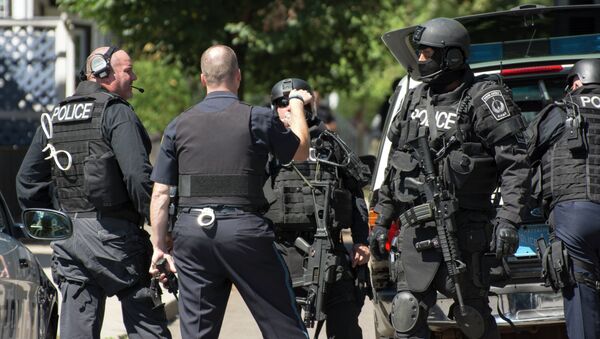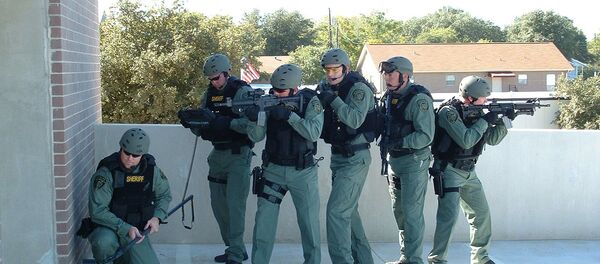The documents include reports from the Northeastern Massachusetts Law Enforcement Council (NEMLEC) SWAT on their 79 operations occurring from August, 2012, through June, 2014 in Middlesex and Essex Counties, just outside of Boston.
The reports indicate that SWAT is being used for many minor drug-related arrests, which the ACLU asserts is a trend that can be observed nationwide.
"We know in the 21 drug warrant raids in the records we received, police only recorded recovering drugs five times," Jessie Rossman, a staff attorney for the ACLU of Massachusetts, told the Eagle Tribune.
"It's incredibly important that communities know how their money is being spent and how police officers are being used. Ultimately, we know that there’s no arresting or incarcerating ourselves out of drug use. We've been trying for 40 years. All we have to show is the worst incarceration crisis in the world and higher drug use."
Kade Crockford, also of the ACLU of Massachusetts, noted that the drugs that were uncovered were not large busts, and were often just small amounts of illicit materials.
“The drug hauls are not exactly Pablo Escobar-levels of seriousness,” Crockford told CBS. “In one case they found some pills. In another case they found some marijuana.”
Approximately half of the remaining deployments involved what should have been ordinary police work, the Intercept noted, such as executing warrants, dealing with expected rioting after a 2013 Red Sox World Series game, and providing security for a Dalai Lama lecture.
In another mission, 15 SWAT officers were deployed to Salem Halloween celebrations to look for “gang-related activity,” though the documents do not specify any specific targets. They do, however, warn the officers to be on their best behavior, noting, “everyone has a camera phone and you don’t want to be on YouTube or the news later.”
Many of the other deployments were suicide-related. According to the reports, the average number of officers deployed to a potential suicide risk is 32.
“It’s certainly counter-productive to have a fully-armed militarized SWAT team respond to potentially suicidal suspects who are looking for ways out like suicide-by-cop situations,” Tom Nolan, an associate professor of criminology at Merrimack College and a former Boston Police Department lieutenant, told the Intercept. “I don’t know why you couldn’t just have someone respond who knows negotiation strategy techniques, without the tanks and the body armor.”
NEMLEC originally fought the ACLU on releasing the documents, claiming they are a private corporation and not a government entity and therefore they were exempt from providing transparency.
“You can’t have it both ways,” Jessie Rossman, a staff attorney for the Massachusetts ACLU, told the Washington Post last year.
“The same government authority that allows them to carry weapons, make arrests, and break down the doors of Massachusetts residents during dangerous raids also makes them a government agency that is subject to the open records law.”




